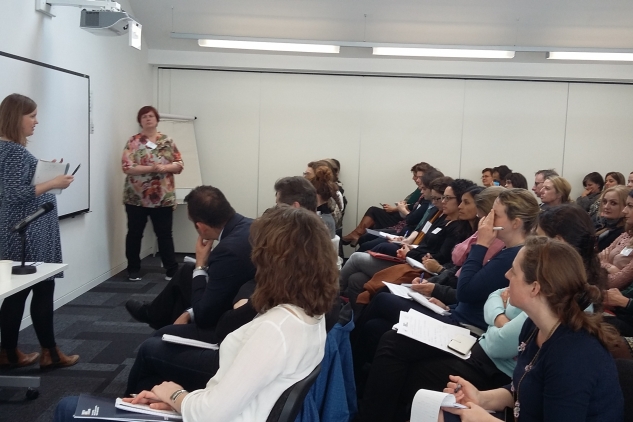
FLEX hosts Europe-wide conference on identification and support of victims of trafficking for labour exploitation
Last week 50 delegates from 22 countries across Europe came together at the FLEX offices in London, for two days of plenaries and workshops at our conference ‘Proactive identification and support for people trafficked for labour exploitation’.
This conference marked the closing of the pilot phase of the Pro-Act Project, during which new strategies to improve pro-active identification and support of victims of trafficking for labour exploitation were implemented in the UK, the Netherlands and Romania. Project partners FLEX (UK), FairWork (Netherlands), ADPARE (Romania), LAWRS (UK) and Migrant Help (UK) presented the challenges faced and lessons learned during the pilots. Experts in the anti-trafficking field from NGOs, support providers, law centres, unions and migrant rights organisations across the EU shared their experiences and discussed ways to improve and implement similar strategies in their own countries.
Workshops focused in detail on issues including provision of information, provision of counselling, cultural mediation and needs & risk assessments. Transferability of the strategies to different national contexts was a key focus of discussion, and delegates worked in groups to share expertise and identify practical steps to improve services for trafficked people in their own country contexts.
Advocacy at both national and international level was also high on the agenda. FLEX directors Caroline Robinson and Claire Falconer led a session on advocacy issues arising from the research and pilot phases of the project. These included barriers to compensation, a lack of long-term support for victims, and the problems caused by overlap between labour inspection and immigration actions. The closing plenary focussed on opportunities for joint advocacy on these issues at the EU-level, which will provide the focus for the final months of the project.
This project has been funded with support from the European Commission. This blog reflects the views only of the author, and the European Commission cannot be held responsible for any use which may be made of the information contained therein.
